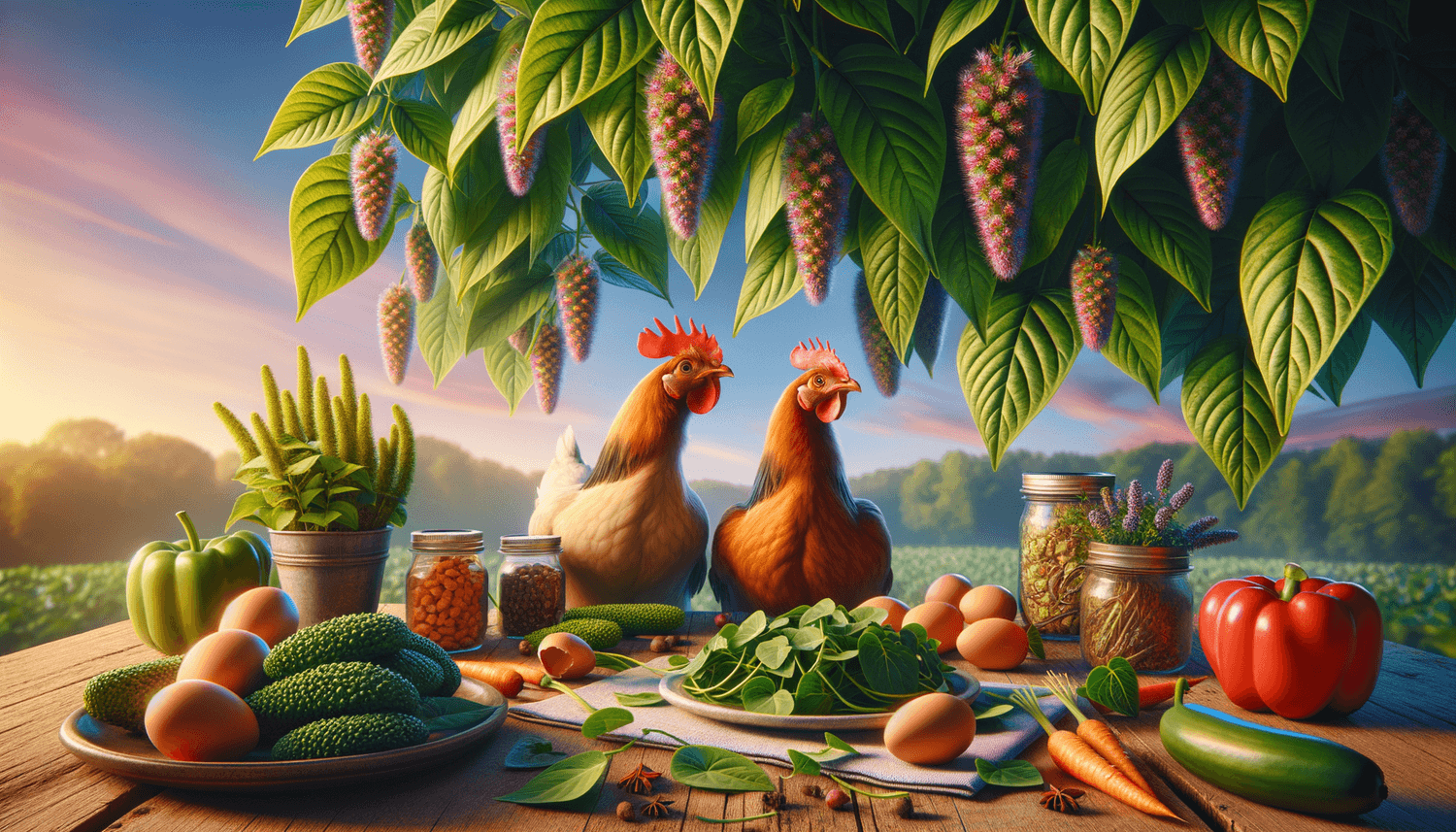Cluck, cluck! It’s time for another egg-citing adventure in the wonderful world of backyard chickens! Today, we’re exploring the seemingly dangerous question: Can Chickens Eat Poison Ivy? Ivy this out, before you scratch your head raw, let’s dive into the truth behind this itchy topic. We’ll delve into whether your favorite feathery friends can actually chow down on this notorious plant, the importance of a balanced diet for your peckish pals, and whether there are any benefits or risks. We’ll also scratch the surface on the nutritional value of this curious crop and give you some tips on how to prepare it for your chickens’ delight (if deemed safe, that is!). So, let’s get cracking!
Can chickens eat poison ivy?
Yes, chickens can safely eat poison ivy without any harm. These fantastic feathered creatures are actually immune to the plant’s urushiol, which is the chemical responsible for causing the allergic reactions in humans. So, your backyard flock can gobble up this pesky plant without the worry of experiencing any itching or discomfort.
A clucking-good balanced diet for chickens
Just like us humans, chickens also require a balanced diet to live a happy and healthy life. The foundation of a well-rounded chicken diet should consist of high-quality chicken feed. This ensures that they receive the optimum mix of all those important nutrients like protein, vitamins, and minerals to help support growth, egg production, and overall health.
Chicken feed should make up around 80-90% of your feathered friends’ daily consumption. The remaining 10-20% can (and should) come from treats like fruits and vegetables. This not only keeps them healthy, but it also helps keep them entertained and engaged in their environment. Variety is key when it comes to maintaining a peck-positive lifestyle for your chatty chicks!
Nutritional value of poison ivy for chickens.
Although chickens can safely eat poison ivy without experiencing allergic reactions or harm, it’s important to note that this plant offers limited nutritional benefits. Poison ivy is not particularly rich in vitamins, minerals, or other essential nutrients required for the optimum health of your flock.
While it might make for an interesting snack to satisfy their curiosity or to rid your garden of this pesky plant, poison ivy should not be considered a significant part of a chicken’s diet. Ensuring your backyard flock receives a mix of other nutritious treats like fruits, vegetables, and insects is more beneficial for their well-being, as these treats can provide a broader range of vitamins and minerals required for their growth and overall health. Thus, while poison ivy can be added to the list of safe plants for chickens to eat, its nutritional contribution to their diet is rather insignificant.
Nutrition table of poison ivy for chickens.
| Information | Description |
|---|---|
| Nutritional Value | Low nutritional value; not a significant source of vitamins or minerals for chickens. |
| Suggested Serving Size | None specified. Poison ivy should not be considered a significant part of a chicken’s diet. |
| Safe Feeding Practices | Chickens can naturally consume poison ivy without harm, but prioritize offering a balanced diet consisting of high-quality chicken feed and other nutritious treats. |
| Preparation | No preparation needed. Chickens can consume poison ivy directly from the plant. |
| Potential Risks | No risks for chickens, as they are immune to the urushiol found in poison ivy; however, the plant provides limited nutritional value. |
| Hydration | Poison ivy does not contribute significantly to a chicken’s hydration. Always ensure your flock has access to clean water. |
| Digestion | No known adverse effects on digestion, but poison ivy does not provide additional benefits to a chicken’s gut health. |
| Seasonal Availability | Poison ivy is most prevalent during spring, summer, and early fall. |
| Other Benefits | Chickens’ love for poison ivy can help keep your garden or yard clear of this pesky plant. |
Other plants for your chicken’s snacking pleasure
While your chickens can eat poison ivy without any harmful effects, it’s best to consider other plants that are nutritious and beneficial for their diet. Here are some popular choices you can offer to your backyard flock:
- Leafy greens: Spinach, kale, and lettuce are great options for providing vitamins and minerals.
- Vegetables: Cucumbers, carrots, and squash are tasty and hydrating treats for your birds.
- Fruits: Berries, watermelon, and apples are enjoyed by chickens and provide a good source of vitamins and hydration.
- Herbs: Offering herbs like parsley, oregano, and basil can provide health benefits and enhance their immune system.
Make sure to provide a variety of treats and ensure your chickens receive the necessary balance in their diet for optimal health.
Avoiding toxic plants
Although chickens can safely eat poison ivy, there are other plants that can be toxic to them. Keep an eye on your garden and ensure your flock does not have access to these potentially harmful plants:
- Castor bean
- Rhubarb leaves
- Foxglove
- Nightshades (e.g. tomato, potato, and eggplant leaves)
- Daffodil
If you suspect that your chickens have ingested any toxic plants, it’s crucial to monitor them closely for any signs of illness and consult a veterinarian immediately.
By providing a balanced diet, offering a variety of nutritious treats, and ensuring a safe environment, you can help your chickens live their happiest and healthiest lives. With the right knowledge and care, your backyard flock will be sure to thrive and brighten your days with their delightful clucks and fresh eggs.

















